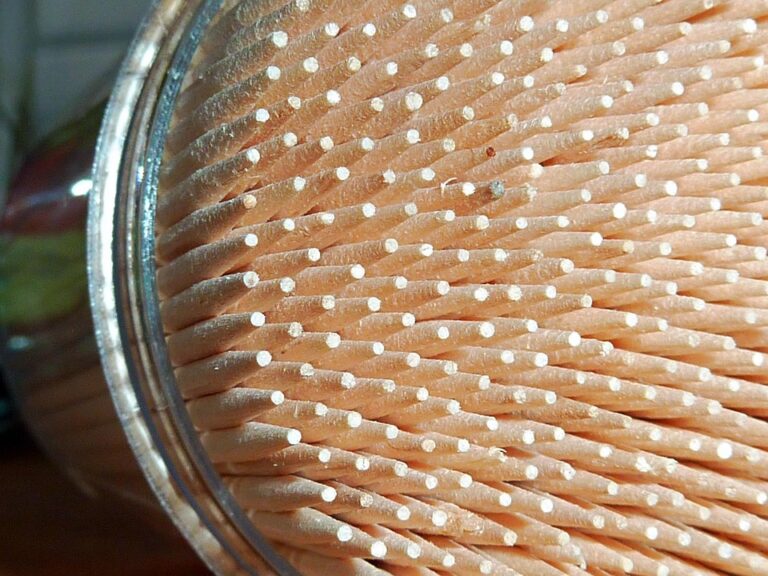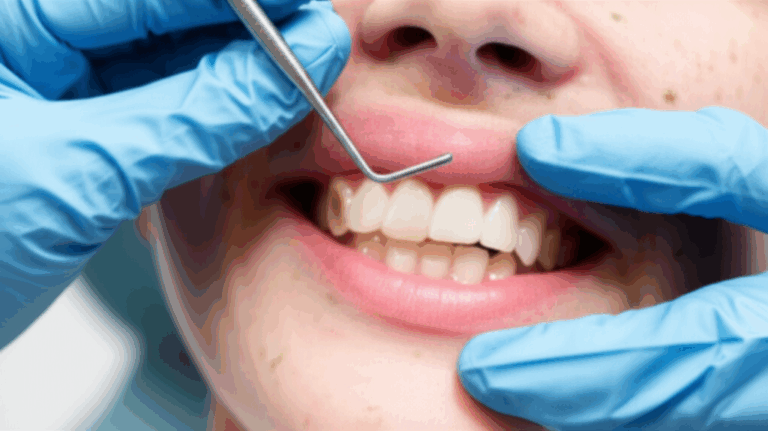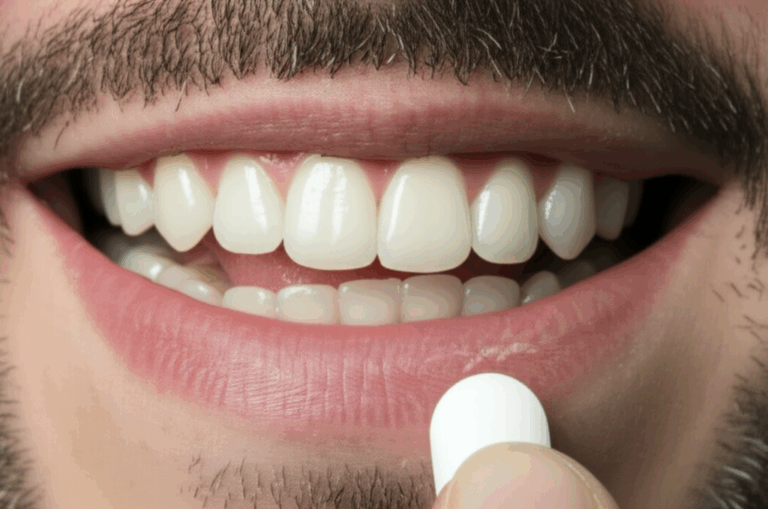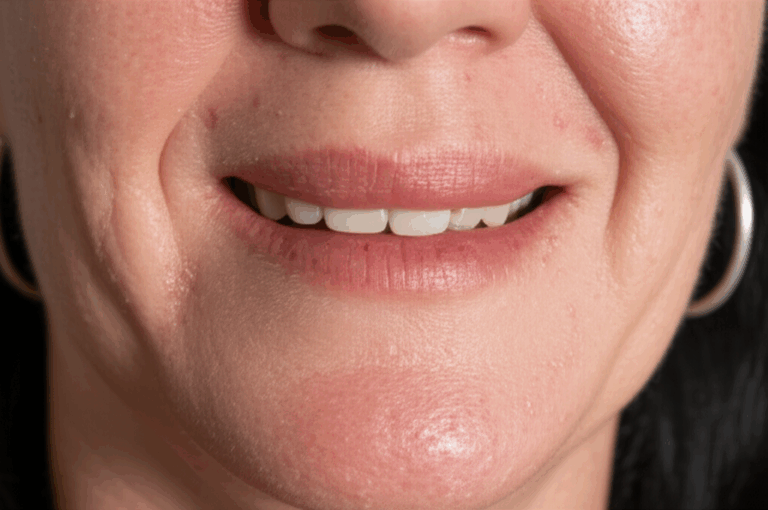
Can Dental Problems Cause Miscarriages? Understanding the Oral-Pregnancy Link
Worried that your toothache or bleeding gums could hurt your baby? You’re not alone. Many moms-to-be wonder if dental problems, like gum disease or infection, might cause them to lose a pregnancy. This article explains what science says about the link between your mouth and your growing baby—and why keeping your teeth healthy is more important than you might think. Let’s dig into clear, helpful answers you can use right now!
Table of Contents
- Do Dental Problems Really Cause Miscarriage?
- What Makes Your Mouth Important for a Healthy Pregnancy?
- How Can Gum Disease Affect Pregnant Women?
- Could Tooth Infections Harm Your Unborn Baby?
- How Do Dental Problems Reach the Baby?
- What Does the Research Say?
- Are There Other Pregnancy Issues Tied to Dental Health?
- What Is the Safest Way to Take Care of Your Teeth While Pregnant?
- When Should You See a Dentist During Pregnancy?
- How Can Dental Labs Help Expectant Moms?
- FAQ
- Key Takeaways: What Every Expectant Mom Should Remember
Do Dental Problems Really Cause Miscarriage?
Let’s be honest—pregnancy already brings a lot of worries. When you hear that a tooth problem might make you lose your baby, it sounds really scary. The truth is, dental problems don’t directly make miscarriages happen most of the time. Instead, they add to your risk if you just ignore them. The real problem shows up when bad gum disease or a big tooth infection brings lasting swelling or germs.
Doctors and scientists have found a connection—mostly with really bad gum disease (called periodontitis) and pregnancy loss. But don’t be scared! Lots of things can cause a miscarriage, and teeth are just a small part. Genes, hormones, or even other sicknesses also matter. The good news? You can help lower your risk just by taking care of your mouth.
What Makes Your Mouth Important for a Healthy Pregnancy?
Maybe you think your mouth and your baby have nothing to do with each other. But they’re more connected than you think! Germs in your gums can sometimes get into your blood and travel to other places—even the placenta or the uterus.
When you have gum disease or a tooth that’s infected, your body tries to fight back. It lets out stuff called cytokines and other signs of swelling, like C-reactive protein (CRP). These things make your body swell up, and too much swelling can cause trouble when you’re pregnant. Sometimes, it can start contractions or cause other problems—not what anyone wants!
Think of healthy gums like a fence. When the fence has holes, bad things (like germs) sneak in. So, brushing and caring for your teeth is not just about looking good; it’s about keeping your baby safe, too.
How Can Gum Disease Affect Pregnant Women?
Gum disease is mainly two types: gingivitis (means your gums are just a little swollen) and periodontitis (a much deeper, worse infection). Did you know that almost half of all pregnant women get gingivitis because of hormone changes? Your gums might bleed, puff up, or feel sore. A little bleeding is normal, but a big infection shouldn’t be ignored.
If gingivitis isn’t treated, it can turn into periodontitis. That means germs go deeper, hurting the bones that hold your teeth. These germs can really hurt, make teeth loose, and—for pregnant women—cause even bigger worries.
Most doctors agree. Bad gum disease can raise your risk of losing a baby, having a baby too early, or a baby born too small. The worst part: you might not even feel much pain! That’s why you need to check your gums and see your dentist if you spot any redness, swelling, or bleeding.
Could Tooth Infections Harm Your Unborn Baby?
Tooth infections, or dental abscesses, are never good. If you get one while pregnant, it’s not just a sore tooth. Germs that cause infection can sometimes get into your blood. That’s how they might reach your baby.
Pregnant bodies already work hard. Add a tooth abscess, and your body might have to work a lot more fighting the germs. This lets out more swelling chemicals, which doctors think can start early contractions. Sometimes, bad germs like Porphyromonas gingivalis and Fusobacterium nucleatum even show up in the placenta of moms who give birth too soon.
If you feel pain, swelling, a high fever, or see pus near a tooth—don’t wait. Getting dental care quickly is the best thing you can do for you and your baby.
How Do Dental Problems Reach the Baby?
You might ask, “How can mouth problems get all the way to my baby?” It sounds weird, but here’s how it happens.
When you have gum disease, your gums bleed more. That gives germs a tiny door to get into your blood. These germs can go far—they might even cross the placenta and reach your baby. Scientists have found mouth germs in the amniotic fluid and placentas of women with pregnancy problems.
But it isn’t just the germs. When your body fights off infection, it makes other things, like prostaglandins and cytokines. These might make the womb squeeze or hurt the placenta. Too much swelling is not good for a growing baby!
Here’s a simple table showing what might happen:
| Problem | How it Travels | What Can Happen |
|---|---|---|
| Gum disease | Bloodstream | Infection, swelling |
| Tooth abscess | Bloodstream | More risk of early labor or loss |
| Germs (like P. gingivalis) | Cross placenta | Can start early labor or infection |
What Does the Research Say?
Let’s look at what experts have found. Research shows a link between really bad gum disease and more risk for problems during pregnancy—like miscarriage, early birth, and small babies.
One study [Daud et al., 2018] found women with periodontitis are 1.5 to 2.5 times more likely to lose a baby than women with healthy gums. But it doesn’t mean every woman with gum troubles will have a miscarriage. It just means the risk goes up.
Scientists have even found DNA from mouth germs in tissue from miscarriages or in placentas from women who lost babies early [Offenbacher et al., 2001; Boggess et al., 2003].
Here’s a quick look at the research:
Table: Dental Health and Pregnancy Outcomes
| Study Type | Main Finding |
|---|---|
| Review Study | Gum disease raises risk of miscarriage by 50-150% |
| How It Happens | Mouth germs found in womb and placenta |
| How Common | 40-75% of pregnant women get gingivitis |
| Treatment Results | Fixing gum problems might lower risk of preemies |
| Types of Germs | P. gingivalis, F. nucleatum found in placenta |
| Swelling Signs | High CRP tied to more problems |
References:
Daud et al., 2018; Ye et al., 2014; Offenbacher et al., 2001; Boggess et al., 2003; Michalowicz et al., 2006
No one knows for sure why this happens, but there’s enough proof that mouth problems can make things riskier. Still, miscarriages almost always happen because of a mix of things—not just your teeth.
Are There Other Pregnancy Issues Tied to Dental Health?
Yes! Gum disease and mouth infections can do more than raise the risk of losing a baby. They’ve also been linked to:
- Early labor: Babies who are born too soon can have trouble growing and learning.
- Small babies: Babies born smaller may have more health issues.
- Preeclampsia: High blood pressure and swelling that’s dangerous for both mom and baby.
Some research says fixing gum disease might help lower these risks. But others say we still need more proof. One thing is sure: better gum health means less swelling and a safer start for your baby.
Want to learn more about keeping your teeth in shape? Check out these tips for teeth health.
What Is the Safest Way to Take Care of Your Teeth While Pregnant?
You might worry that going to the dentist is risky when pregnant. But actually, dentist check-ups and cleanings are safe any time, especially in the second trimester.
What should you do to keep your mouth healthy?
- Brush twice a day with a soft brush and toothpaste with fluoride.
- Floss every day to clean between your teeth.
- Use a gentle, germ-killing mouthwash if your dentist says so.
- If you get morning sickness, rinse your mouth with water after. The acid can hurt your teeth.
- Eat fewer sugary snacks—and have a healthy diet with lots of good stuff.
Worried about x-rays or numbing medicine? Dentists use special covers so it’s safe for moms and babies. Fix small problems early to keep out big ones.
Curious how dental labs help with harder cases? Visit a dental ceramics lab to see how they help your dentist make your smile strong.
When Should You See a Dentist During Pregnancy?
Some signs mean you should call your dentist right away—even if you’re pregnant.
- Your gums bleed, swell up, or hurt—especially when brushing.
- You get a toothache, high fever, or swelling in your mouth.
- You see pus around your teeth or gums.
- Your teeth feel loose.
- Bad breath or taste won’t go away.
It’s normal for gums to change a bit during pregnancy. But pain, swelling, or signs of infection are never okay. Dentists know how to help moms-to-be. Don’t wait—it’s always safer to get help early!
Need more dental tips? Check out dental care for expectant mothers.
How Can Dental Labs Help Expectant Moms?
Behind every good dentist is a group of helpers working in dental labs. These labs make things like custom crowns, bridges, fake teeth, and mouthguards that are safe and gentle for pregnant women.
For example, digital dental labs use computers to design perfect dental parts, so your check-ups are quicker and safer. Some labs focus on removable options, like a removable denture lab. If you break a tooth or need to stop grinding your teeth at night (which happens to some pregnant women!), a night guard dental lab makes mouthguards made especially for you.
With new tech and caring people, dental labs let your dentist give you and your baby the best care—so you can focus on more important things!
FAQ
Can I go to the dentist while pregnant?
Yes! It’s safe and even better for you to get check-ups and cleanings during pregnancy. Just tell your dentist you’re expecting.
Can a tooth infection really hurt my baby?
Serious tooth infections can make the body swell up, and sometimes, germs can get into your blood. This might make miscarriage or early labor a little more likely—so treating infections fast is best.
Is it okay to have dental x-rays while pregnant?
Yes, with the right protection, dental x-rays are safe for moms and babies. Be sure to tell your dentist you’re pregnant.
What should I do if my gums bleed during pregnancy?
A little bleeding is normal, but don’t just ignore it! Keep brushing and check with your dentist. Gum disease gets worse during pregnancy, so keep up your care.
Does brushing and flossing really make a difference?
For sure! Brushing and flossing every day stops problems before they start. It keeps germs—and risks—low.
Key Takeaways: What Every Expectant Mom Should Remember
- Dental problems don’t directly cause miscarriages—but not treating gum disease and bad infections can raise your risk.
- Gum disease is common in pregnancy. Hormone changes make gums easier to hurt and bleed.
- Mouth germs and swelling can travel to other parts of your body, including where the baby is.
- Having regular dental check-ups and cleaning is safe (and really important) for you and your baby.
- Watch out for bleeding gums, tooth pain, or swelling—see a dentist early if you notice any of these.
- Simple things like brushing and flossing protect your pregnancy and your smile.
- Dental labs and new tools help dentists give moms-to-be the best care.
- Most important? Keep your mouth healthy, listen to your body, and always talk to a professional if you’re worried.
Your smile matters—for you and your baby. A little extra care today means peace of mind tomorrow!








